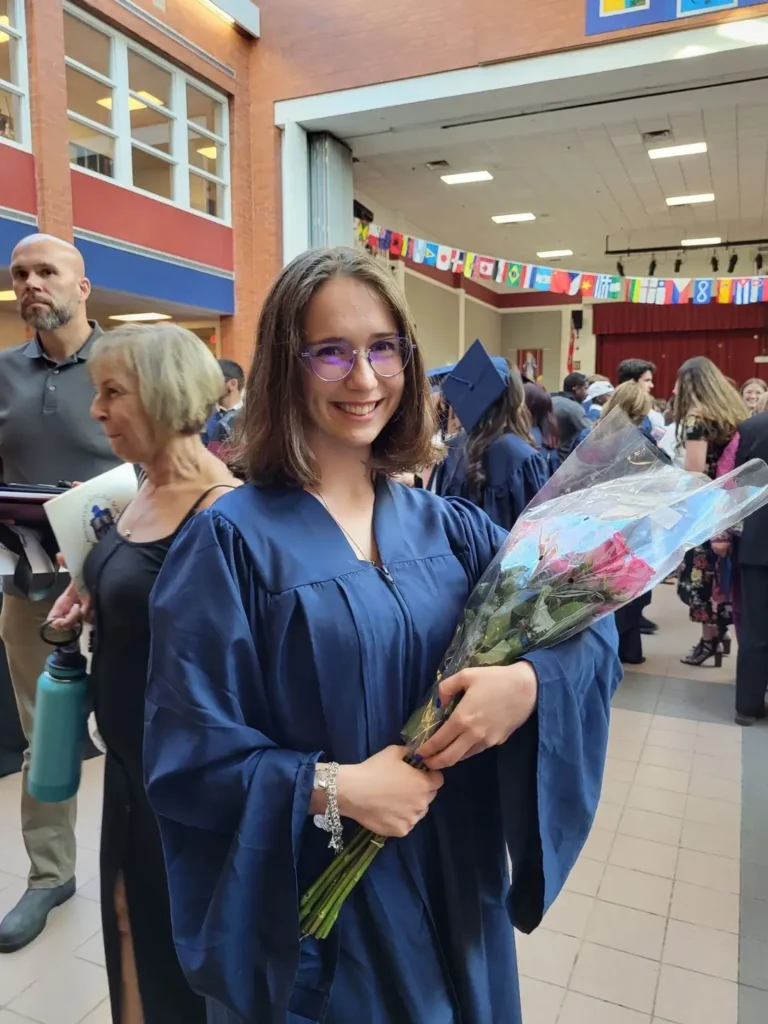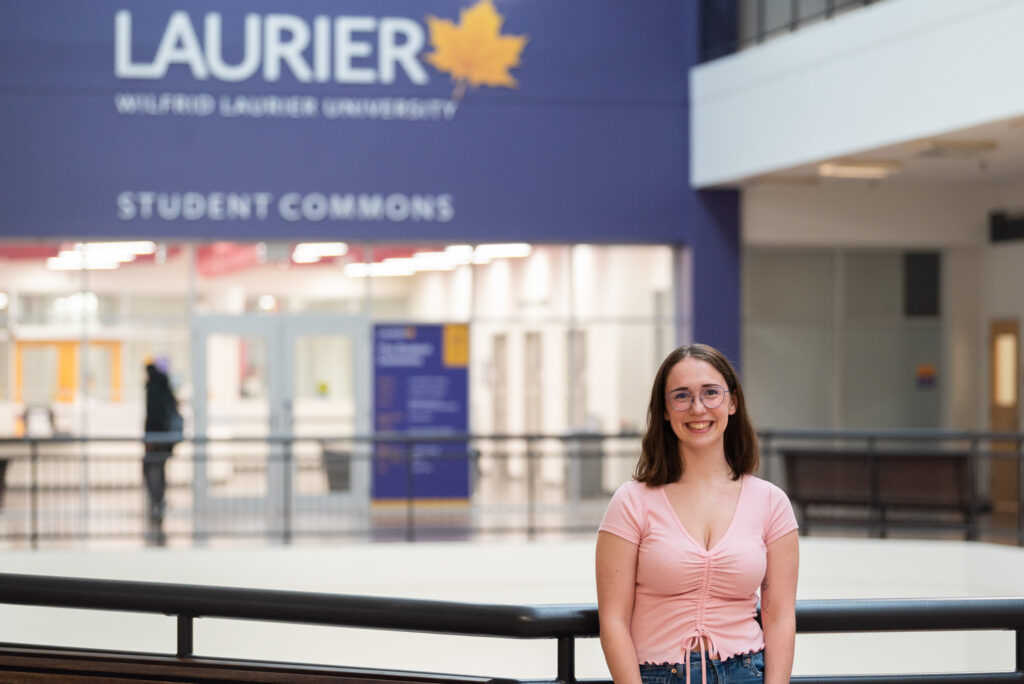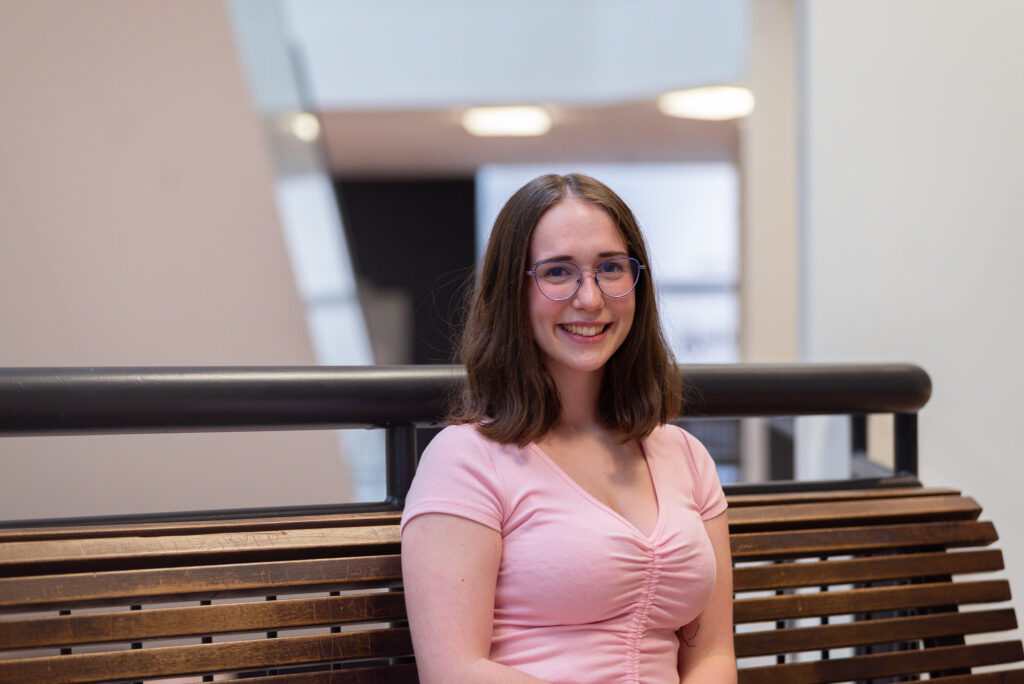With 380 applicants across Canada applying for Wilfrid Laurier University’s most sought-after entrance scholarship, only one incoming first-year student from each faculty was chosen to receive the prestigious Laurier Scholars Award.
Brantford resident, Isabella Bertrand-Abotossaway, a 19-year-old Assumption College School (ACS) graduate, won the scholarship on behalf of the Faculty of Arts.
The scholarship features several benefits including $40,000 towards the recipient’s education for up to four years, $10,000 of which goes towards experiential learning such as a “summer research assistantship, international exchange or another hands-on learning opportunity that connects in-class knowledge to learning experiences outside the classroom.”
As part of joining the community of scholars, Bertrand-Abotossaway will also have access to several resources, as well as, both a faculty and a peer mentor.
To apply for the award, secondary students are required to maintain an average of over 90 per cent, and to demonstrate their commitment to extracurricular activities and community involvement.

At Assumption College, Bertrand-Abotossaway showed her dedication by balancing her studies with not only the Prefect program and participating in morning announcements, but as well as being a part of the Acceptance Community and Empowerment (ACE) club.
“Under that Prefect role, I was tutoring in science, history and english, assisting administration in school events, helping to mentor grade nine students and other things like setting up for Mass and such,” she said. “I was also involved with ACE, which was a group made up of students and teachers that basically helped to make sure that all voices were heard within the school community.”
Now nearing the end of her first year as a double major in the political science and Indigenous studies programs at Laurier’s Waterloo campus, Bertrand-Abotossaway reflected on the moment she discovered she had won the award.
“I had just finished parking my car when I checked my phone quickly and saw the email. All I read at first was ‘you’re a Laurier Scholar’ and I thought to myself, ‘well yeah, I’ve confirmed I’m going to Laurier, so I guess I am a scholar,’” she laughed. “Then I read it again and realized it said ‘‘congratulations, you’re a Laurier Scholar for the faculty of arts,” and I just remember being in the parking lot and screaming with excitement. I immediately called my mom, my dad, and my friends because I just couldn’t believe it. When I told my grandma, she teared up and everyone was just so excited.”

Bertrand-Abotossaway said that while she had originally planned to attend post-secondary school in Ottawa, there were three reasons she chose Laurier instead, one of those being the prestigious award itself.
“The scholarship was a huge factor, but also Laurier has a program where you can get your bachelor of arts and your masters in five years instead of six and that caught my eye because one less year is great,” she said. “The other reason is because my mom had breast cancer, she’s recovered now but she was kind of just finishing her treatment when I was applying to schools. When we had another scare pop up, I knew that on the off chance that something happened, or could happen in the future, I didn’t want to be too far from home and so that was a big a big part of it. I wanted to be close enough to my family that if I needed to help them, I could easily drive home. “
As she wraps up her freshman year, Bertrand-Abotossaway said that she’s been enjoying her courses and the Laurier community, but most of all, she’s excited to be working towards her future goals in Indigenous advocacy, something she became passionate about as she learned more about her heritage.
“My dad is Ukrainian and my mom is Ojibwe so that’s where the Abotossaway in my name comes from. Growing up, I was not connected with mine and my mom’s culture whatsoever, and that happened because a lot of the assimilation tactics that we hear about in the news today; it greatly affected my family,” she said. “When I was about 14 or 15, I kind of started having imposter syndrome where it was like, I am Ojibwe but I don’t live it, and I don’t feel it or understand it. So, I started kind of researching Indigenous history and learning about residential schools and the Sixties Scoop, as well as my family’s connection to it. All of that just grew into this passion of ‘I want to help change this and I can see areas of where I want to create change.”

She said part of the education she needs to make those changes is the political science side of her degree.
“To do any of that, I need to know legislation; I need to understand how the government works and how bills get passed through and so this is really providing that foundation for me to get into Indigenous advocacy,” said Bertrand-Abotossaway.
Overall, the soon-to-be second-year student said that despite the ups and downs of life, it just goes to show that if you continue to push through great things can happen, including being a recipient of an arguably life-changing award.
“It really just speaks to, if you put in the work, the blood, the sweat, and the tears… it does get rewarded at some point,” she said. “High school definitely wasn’t easy for me. Considering that the pandemic was going on and having my mom’s health intertwined with all of that and then just being in high school in general, I fought for all those years to do the best I could, and it was rewarded. Having received the scholarship with money that I was not anticipating having, I can do so much more with it than what I had ever anticipated.”
Kimberly De Jong’s reporting is funded by the Canadian government through its Local Journalism Initiative.The funding allows her to report rural and agricultural stories from Blandford-Blenheim and Brant County. Reach her at kimberly.dejong@brantbeacon.ca.
